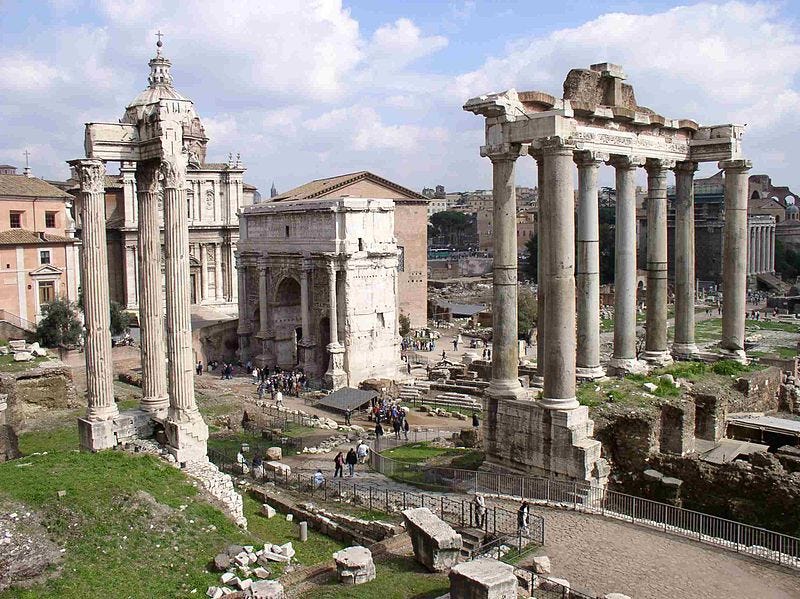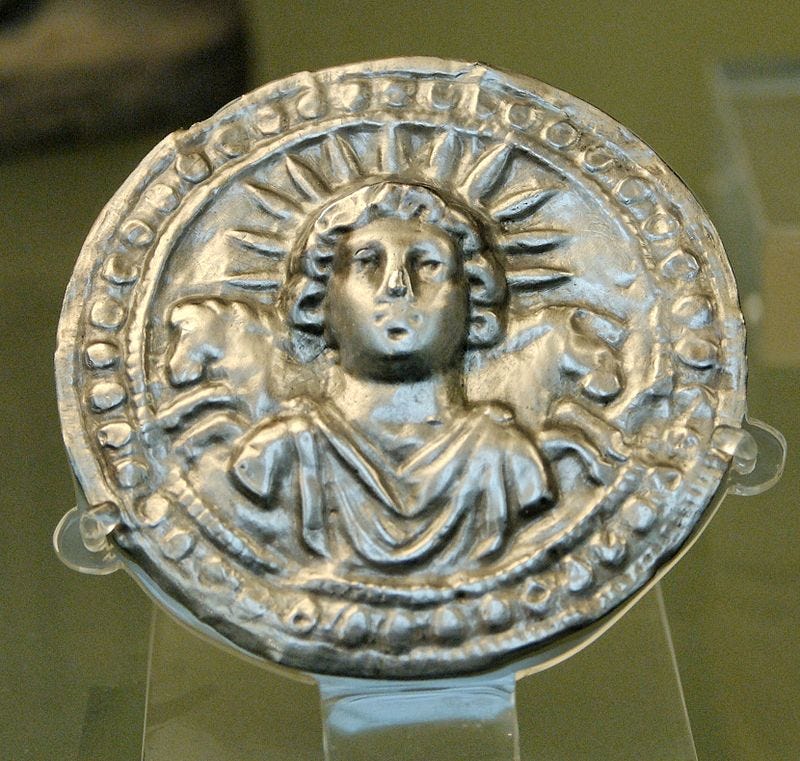Exploring the Surprising Origins of Christmas Celebrations
Written on
Chapter 1: The Roots of Christmas
Have you ever pondered the true origins of Christmas? Since the release of Dan Brown's "The Da Vinci Code," which is filled with conspiracy theories, there has been an increasing conversation around the idea that Christmas may have been derived from ancient Roman pagan celebrations. The Bible itself does not specify the date of Jesus' birth, leaving room for various interpretations and theories.
The notion that Christmas is linked to pagan festivities is not a recent idea; it can be traced back to the 12th century. But how much truth is there to these assertions? Did Christians truly adopt the festivities of Saturnalia, or were they simply continuing the tradition of honoring the Roman Sun god, Sol Invictus?
To delve into these questions, we first need to explore the Roman festivals and their significance.
Section 1.1: Saturnalia - The Roman Celebration of Lights
Saturnalia, dedicated to the god Saturn, was one of the most significant holidays in ancient Rome, celebrated from December 17 to December 23. The festivities commenced with a sacrifice at Saturn's temple, followed by a public feast and the exchange of gifts. Social norms were relaxed during this time; gambling was permitted, and even slaves enjoyed a place at the table with their masters, sometimes even reversing roles.
Why was this temporary kindness shown to slaves? According to Roman historian Justinus, Saturn ruled over a time in Italy where there was no slavery, and everyone was treated equally. The Romans honored this past by dissolving social hierarchies during Saturnalia.

Parties, gift exchanges, and a spirit of indulgence characterized the celebrations. Furthermore, Saturnalia marked the welcoming of the Winter Solstice, as noted by Macrobius, an essential ancient source on the holiday. This festival of lights resonates with winter solstice traditions observed worldwide.

In 274 AD, Emperor Aurelian declared December 25 as the official birthday of Sol Invictus, known as Dies Natalis Solis Invicti, or the “Birthday of the Unconquered Sun.” Later, theologians suggested celebrating Jesus' birth on this date to honor Sol Invictus. However, this theory has its inconsistencies, as Sol was not a primary Roman deity.
The idea that December 25 was chosen to overshadow the Sun god's birthday emerged centuries after the fall of the Roman Empire. During a time of religious upheaval, emperors often introduced new holidays aligned with their preferred faiths. The limited sources about Sol Invictus compared to Saturnalia imply that there was no entrenched custom among Romans to celebrate the Sun god’s birthday.
Discover how Saturnalia influenced the Christmas we know today in this insightful video.
Section 1.2: The Calculation Hypothesis
Despite the connections drawn, evidence that Christmas was established to replace the Sun god's birthday remains scant. However, the association of Sunday with Sol Invictus does highlight the complexities surrounding these traditions. In 321 AD, Emperor Constantine designated Sunday as a day of rest, indicating its importance in Roman culture.
Why do we celebrate Christ's birth on December 25 if it was not meant to supplant the Sun god's birthday? Some scholars suggest that early Christians believed Jesus was conceived and died on the same date. Given that the possible dates of his death are around March 25 or April 6, the choice of December 25—nine months later—aligns with early Christian thought.
Interestingly, some Christian communities, like the Greek Orthodox and Armenian Orthodox, celebrate Christmas on January 7 and January 6, respectively, based on the April 6 conception date. The December 25 observance gained popularity as it coincided with existing winter solstice festivities.
Explore the fascinating history of Saturnalia and its influence on modern Christmas traditions in this documentary.
Chapter 2: The Conclusion
Determining the true origins of Christmas is challenging. While some traditions may trace back to Saturnalia, the evidence connecting Christmas to pagan roots is minimal. Sol Invictus was not a widely revered Roman deity, and Aurelian's establishment of celebrations may have aimed to counter the rise of Christianity.
The calculation hypothesis seems plausible, yet it raises questions about why early Christian scholars proposed various dates for Jesus' birth before settling on December 25. Could it be that Sol’s limited prominence gained significance under Aurelian’s support? Constantine, after becoming a Christian, still honored the Sun god by designating a rest day.
Although certain Christmas traditions can be linked to Saturnalia, lavish feasts and gift exchanges were not exclusive to this festival—many other pagan celebrations featured similar customs.
Which theory resonates with you the most? Share your thoughts in the comments.
If you're interested in historical narratives surrounding Christmas, consider exploring the time when Christmas was outlawed in England.
Why Was Celebrating Christmas Illegal in England During the 17th Century?
A seventeen-year ban on Christmas celebrations led to widespread riots.
Wishing you and your family a joyful Christmas and a prosperous New Year! If you enjoy uncovering historical tales, subscribe to my newsletter for captivating stories from past civilizations. You can support my work by subscribing to Medium through my referral link for unlimited access to thousands of articles.
Sources:
- Macrobius, Saturnalia.
- Seneca the Younger, Epistulae.
- Clement, Stromateis.
- Beard, Mary; North, J. A.; Price, (1998), Religions of Rome: A Sourcebook.